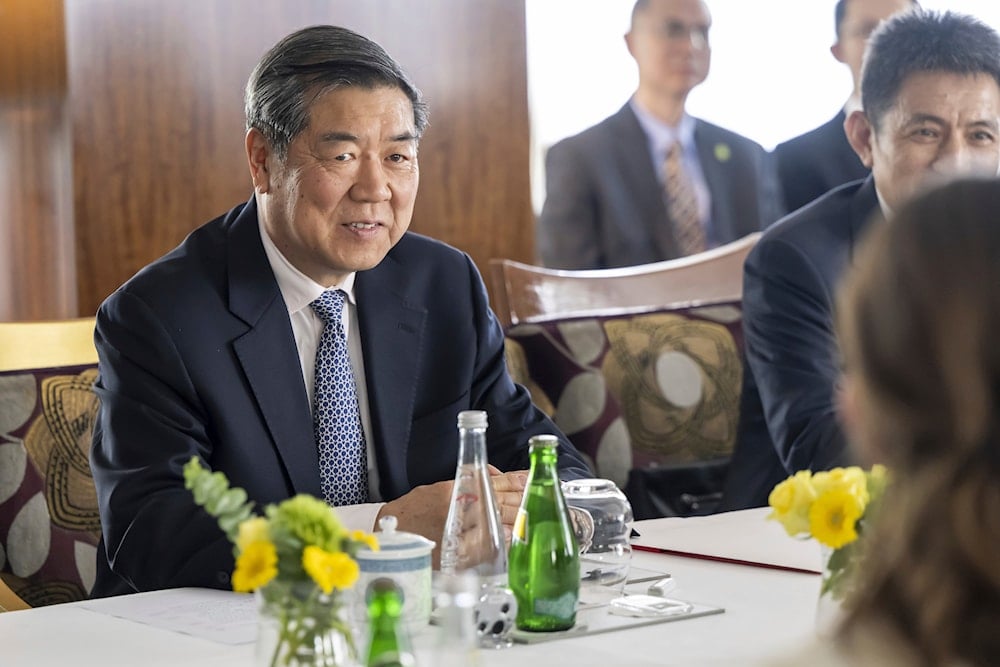Chinese Vice Premier to visit UK for trade talks with US
Chinese Vice Premier He Lifeng will visit the UK from June 8 to 13, during which the China-US economic consultation mechanism will convene.
-

Chinese Vice Premier He Lifeng, listen to the speeches during a bilateral meeting between Switzerland and China, in Geneva, Switzerland, on May 9, 2025. (Martial Trezzini/Keystone via AP, Pool)
Chinese Vice Premier He Lifeng arrived in the United Kingdom on June 8 for a six-day official visit that will last until June 13, according to a statement by the Chinese Foreign Ministry.
As a Member of the Political Bureau of the Communist Party of China (CPC) Central Committee and Vice Premier of the State Council, he is scheduled to engage in several diplomatic and economic meetings during his stay.
The centerpiece of the visit is the convening of the first meeting under the renewed China-US economic and trade consultation mechanism, signaling a significant step in bilateral dialogue between Beijing and Washington.
While in the UK, He Lifeng will co-chair the meeting with US representatives as both sides seek to stabilize trade relations after recent disputes. The session is expected to focus on sensitive sectors, particularly rare earth metals, which have grown increasingly vital to technological supply chains.
Peter Navarro, senior counselor for trade and manufacturing to US President Donald Trump, confirmed that discussions on rare earth elements would be a priority in the coming talks. He described the dialogue as part of a broader effort to resolve persistent trade friction between the two countries.
Tariff reductions and preliminary agreements
This meeting follows earlier high-level discussions held in Geneva on May 10–11, led by He Lifeng and US Treasury Secretary Scott Bessent. During those talks, the two sides reached a preliminary agreement to temporarily reduce tariffs, which came into effect on May 14 and is set to last 90 days.
Under the deal, Beijing agreed to impose a 10% tariff on American imports, while Washington maintained a 30% tariff on Chinese goods, owing to the continued enforcement of the 20% tariff on products categorized under the "fentanyl" classification.
The agreement was described by both sides as "reciprocal" and intended to ease economic pressure while more permanent solutions are negotiated.
The revival of formal economic talks comes at a time of renewed geopolitical and economic tension between the two powers. Trump emphasized a hardline stance on trade imbalances and access to critical materials, repeatedly identifying China’s control over rare earth exports as a national security concern.
On that note, China signaled on Saturday a willingness to accelerate the approval process for rare earth mineral exports to the European Union, in what appears to be a strategic effort to ease mounting trade friction between Beijing and Brussels.
The move follows China's suspension of certain rare earth exports in April, a decision that raised alarms in European industry over access to critical materials vital for high-tech manufacturing and green energy initiatives.
Despite past escalations, both countries have shown a willingness to re-engage on practical terms, starting with tariff management and extending to broader issues such as technology transfers and industrial policy.

 3 Min Read
3 Min Read










